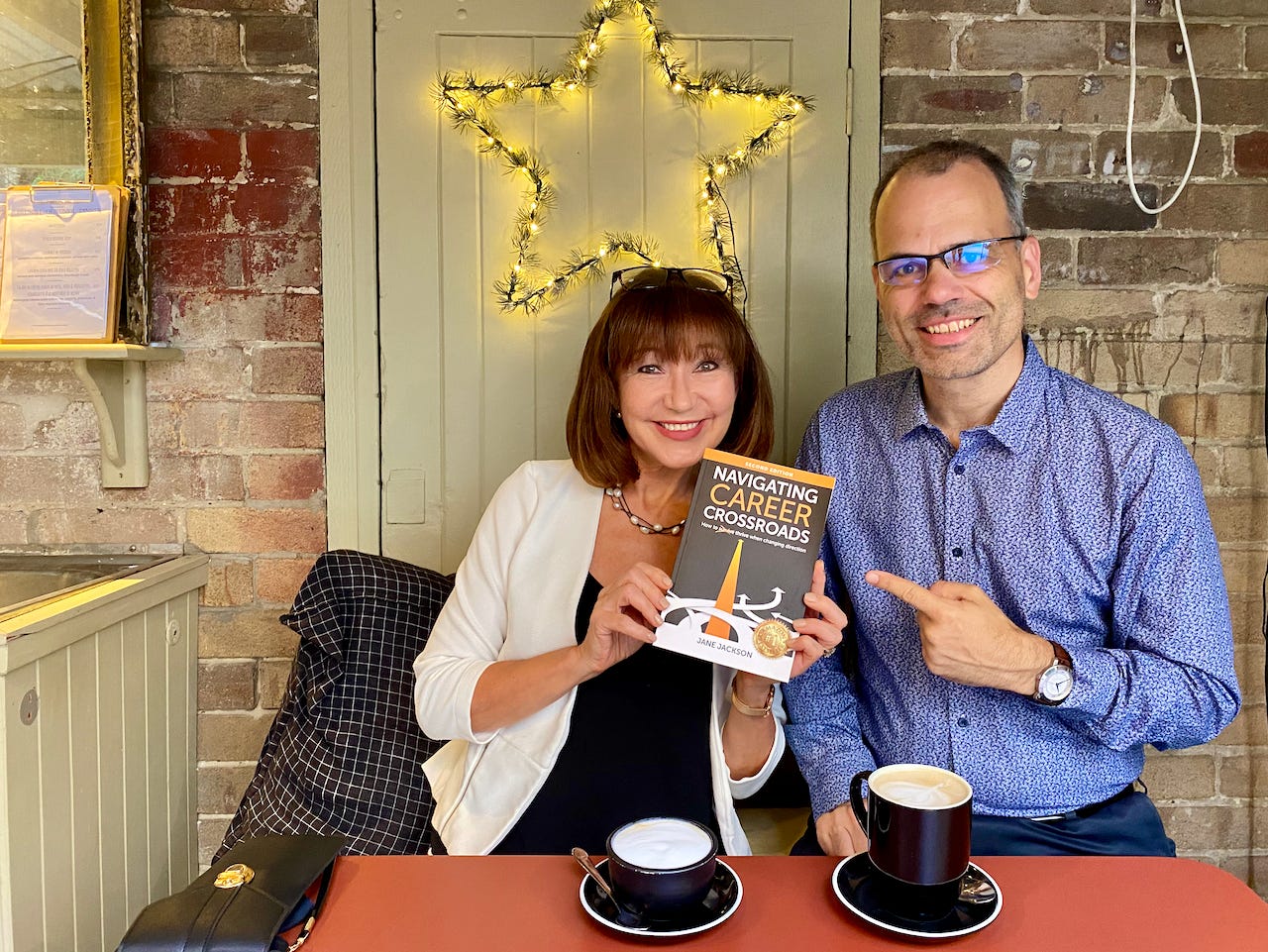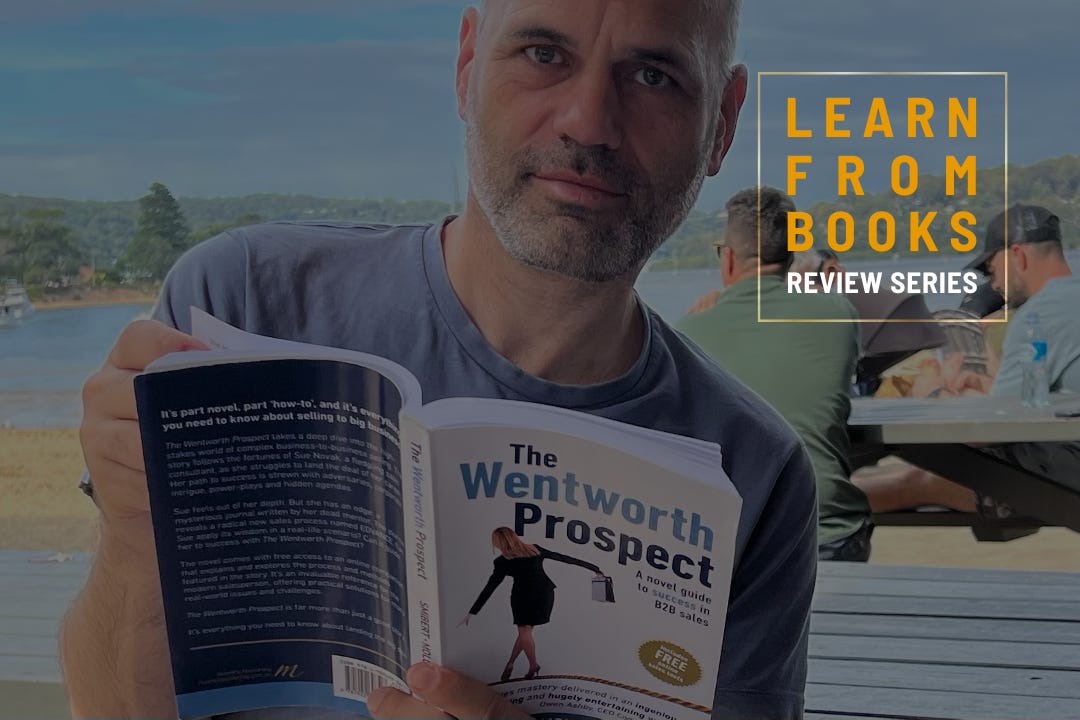I asked 33 published authors about their tips for upcoming writers
Need some advice about writing books? Here is an analysis from my book review interview series where I asked seasoned authors to help new writers on their journey to be published.
Let’s get started with a confession: I read most non-fiction books with an analytic mindset and hidden agenda trying to figure out more than what’s written on face value.
I want to know what other writers can learn from the particular book. Maybe something notable about the structure, the selected examples, the chosen layout, the provided summary or the enticing writing style are worth noting.
When I started writing my first review of Cian McLoughlin’s book Rebirth of the Salesman including an interview with him some years ago, little did I know what that series of so far 33 reviews would have in stock for me.
That includes being hired in a software company as the right person read my review, being connected to thought leaders in the IT sales arena in Australia or being mentored by one of the greatest minds in the sales profession.
Posted in the meantime as monthly reviews in my LinkedIn newsletter Learn From Books (check it out on my Substack here), I kept the structure of my reviews and the interviews pretty similar.
The last question to the author is always this one: “What would you advise others about writing their book?”
Here are the top ten tips across the 33 reviewed books by their authors (you can find more about the respective book reviews in the links):
Purpose: It requires a massive motivation to embark on the journey to become a published author. Some want to use the book as a lead magnet, others seek that form of authority which online courses and blogging activities just can’t provide. In the review for Navigating Career Crossroads, Jane Jackson asked the right questions: “Understand why you are writing your book. What purpose does it serve? Who is your audience? Is there a need for what you are about to commit to?”
Planning: While some fiction authors just start writing without knowing where the journey will end, that is rarely the case with non-fiction or business writers. Building structures about the content and the writing process is key. Michael Haynes, one of the two authors of Listen Innovate Grow, confirmed: “Put together an outline plan to get the book done and find out what works best for you.”
Time: Most authors agreed in the review interviews that waiting doesn’t make a book come out or better, in the opposite. Besides the timeliness question as such, Shani Taylor added the change aspect to that question in the review to her book From Ignored to Adored: “You can’t write, leave it for weeks or months and then pick it back up – you change as a person so what you wrote six months ago won’t feel like you six months later. Write now. Write consistently. Write wholeheartedly.”
Feedback: Many authors tend to write by themselves without sharing the work until it is ready. Most products ever created are shown in prototype stages to potential customers. Books are no different! Therefore I agree with Larry Levine, the author of Selling From The Heart: “Gain their feedback, share your why in why you would like to write the book. And most of all, assemble a team to help you bring your book to life.”
Audience: Especially coaches and consultants who want to use the book as a vehicle to solve problems for their clients, their published work should attract the right target reader. Dennis Geelen, the author of the parable The Accidental Solopreneur, underlined that point: “Be very clear on who your book is for and why they should read it. If that is not apparent, you will likely have a hard time getting people to buy and read it.”
Inspiration: Who didn’t also see some movies of classic writers who sit and being kissed by inspiration? That is a dream, reality is totally different. As , the author of Act Before You overThink, rightfully mentioned: “You cannot wait for inspiration to come and then start writing. You have to write, no matter the quality. And then the inspiration will come.”
Resilience: For those writers adding a lot of their personal story in the upcoming book, Lynette Diehm suggested: “Be bold, be brave, be resilient and never give up on getting your story out there.” Her book, Dare to be You, is the most personal book I ever reviewed talking about how to break free from the past to become yourself. For her writing became a therapy, I can only imagine the feeling when she had the book in her hand.
Coach: Most writers didn’t learn book writing, book publishing, book marketing and the whole industry in any formal education. Going through everything for the first time without probably repeating is not efficient. Therefore it is important to rely on someone who is a couple of steps ahead. confirmed that in our interview about Stop Wasting Your Time Networking: “Have a business coach or a book coach to help you. … He had been through it before and was very helpful in cheerleading, guiding, and advising me.” (I’m currently helping two writers as well, one being my mum).
Editor: As we mentioned, going just by yourself won’t be sufficient to produce a great book, especially not about the text itself. As Mario Krivokapic mentioned in the review about his book, Still Underrated: “Get a good editor. An editor worth her salt is worth more than anything.” After having published 26 books, I totally agree - they create magic out of a draft (I can highly recommend my current editor Karen Crombie).
Flow: One of my favourite responses came form my above mentioned mentor who published a trilogy using his own name called Justin Michael Method with Attraction Selling being the last one. His ultimate advice for the serial writer: “Let it flow from your heart. Sometimes, it takes a few books to discover your authentic essence and find your voice. Powerful writing flows through you as a divine vessel.”
TL;DR:
Purpose: Understand the motivation behind writing your book.
Planning: Build a clear structure to make the writing process efficient.
Time: Write consistently to avoid losing your connection to the material.
Feedback: Share your draft early to gather valuable insights and support.
Audience: Be clear about who your book is for and why they should read.
Inspiration: Start writing and let the ideas come to you.
Resilience: Be bold and never give up on getting your story out there.
Coach: Rely on a coach who can guide you through the publishing journey.
Editor: A skilled editor is transforms words into something extraordinary.
Flow: Let your authentic voice emerge naturally to flow from the heart.
Find my book review series here to learn more (new episodes coming soon).
Which one resonates most with you for your own book(s)?






I agree about editing. I’ve read a few books and it’s pretty obvious that ‘a friend read through it for me’.
Your list is the beginning of a book in itself. :)